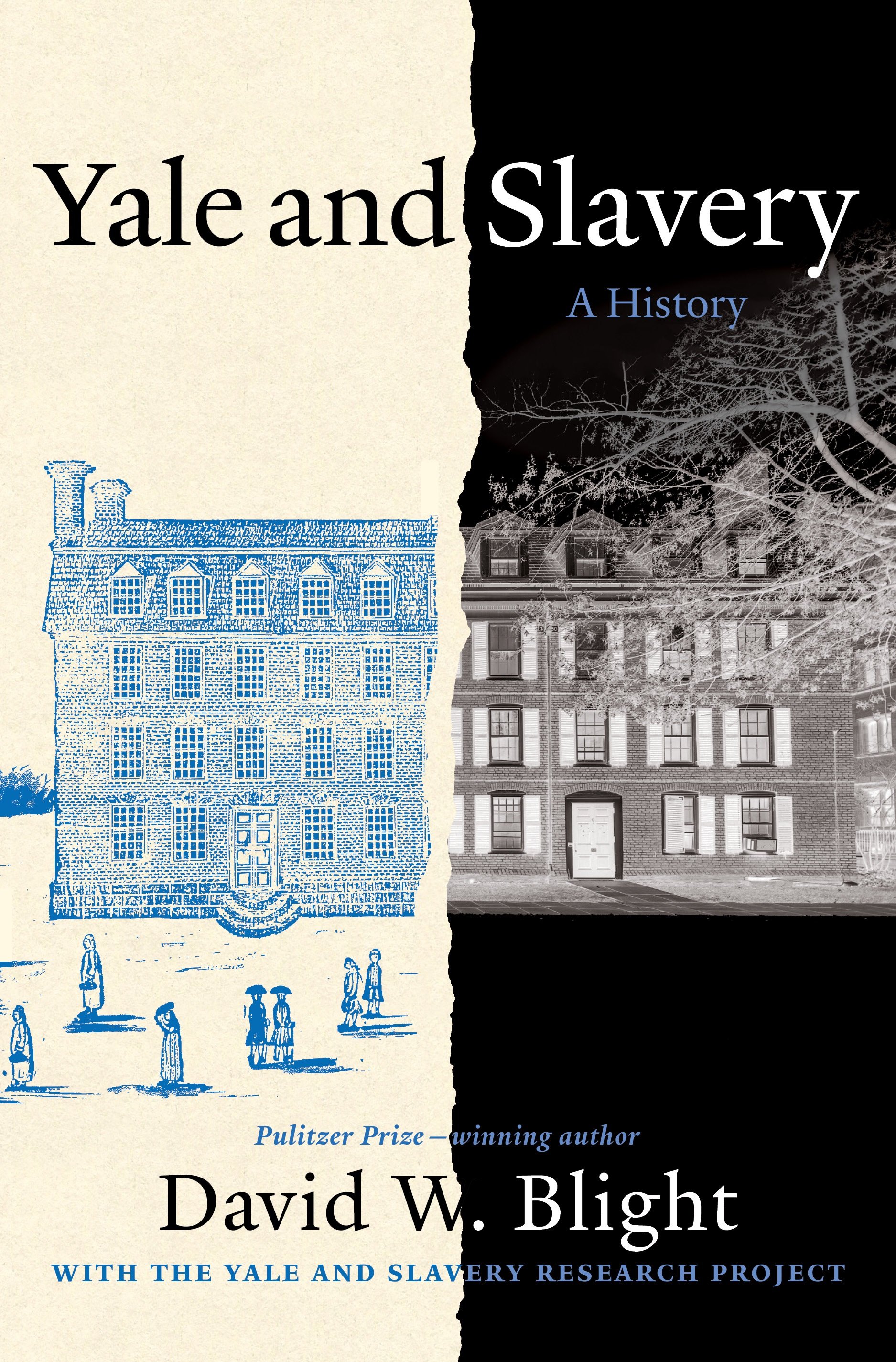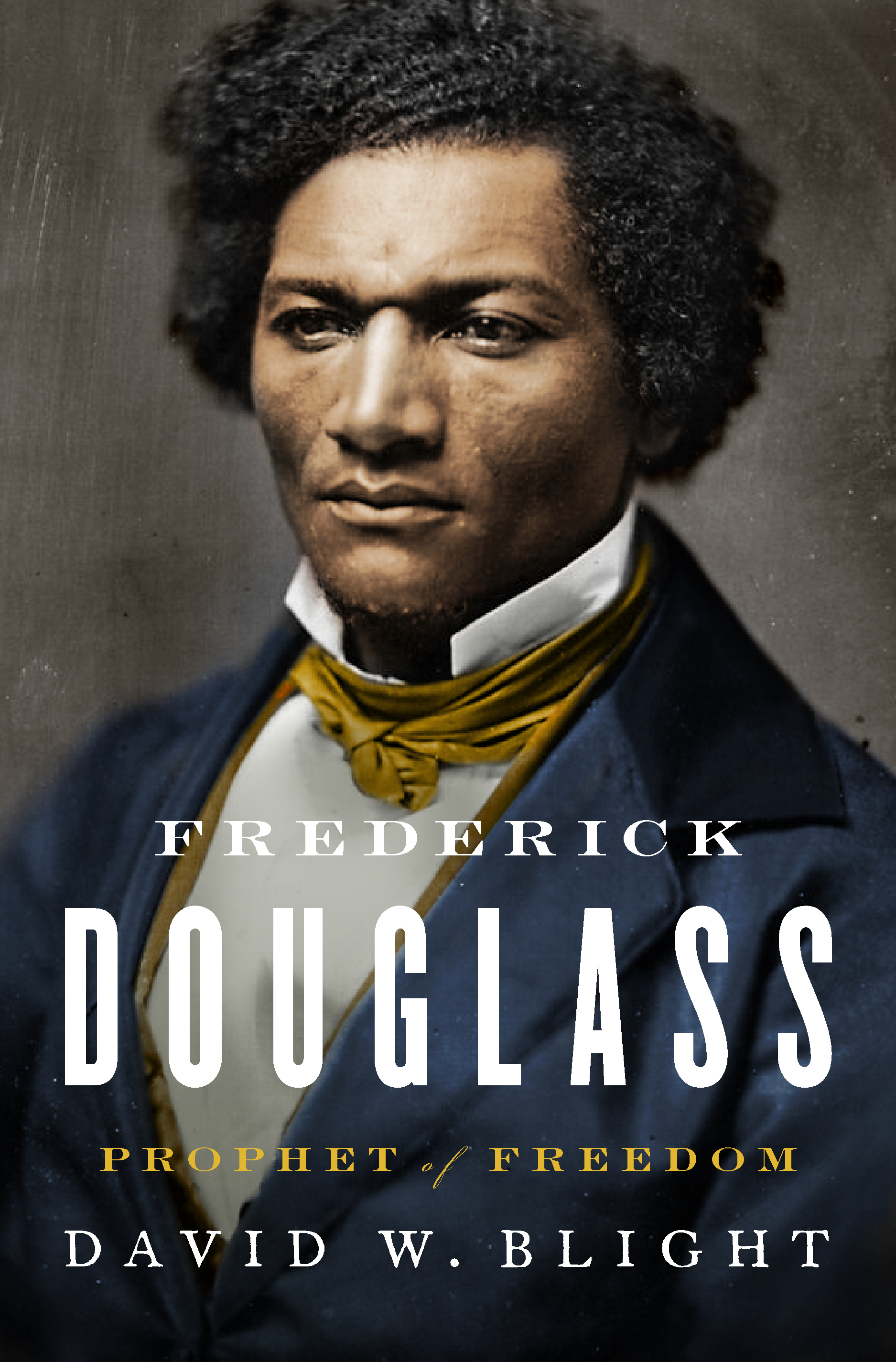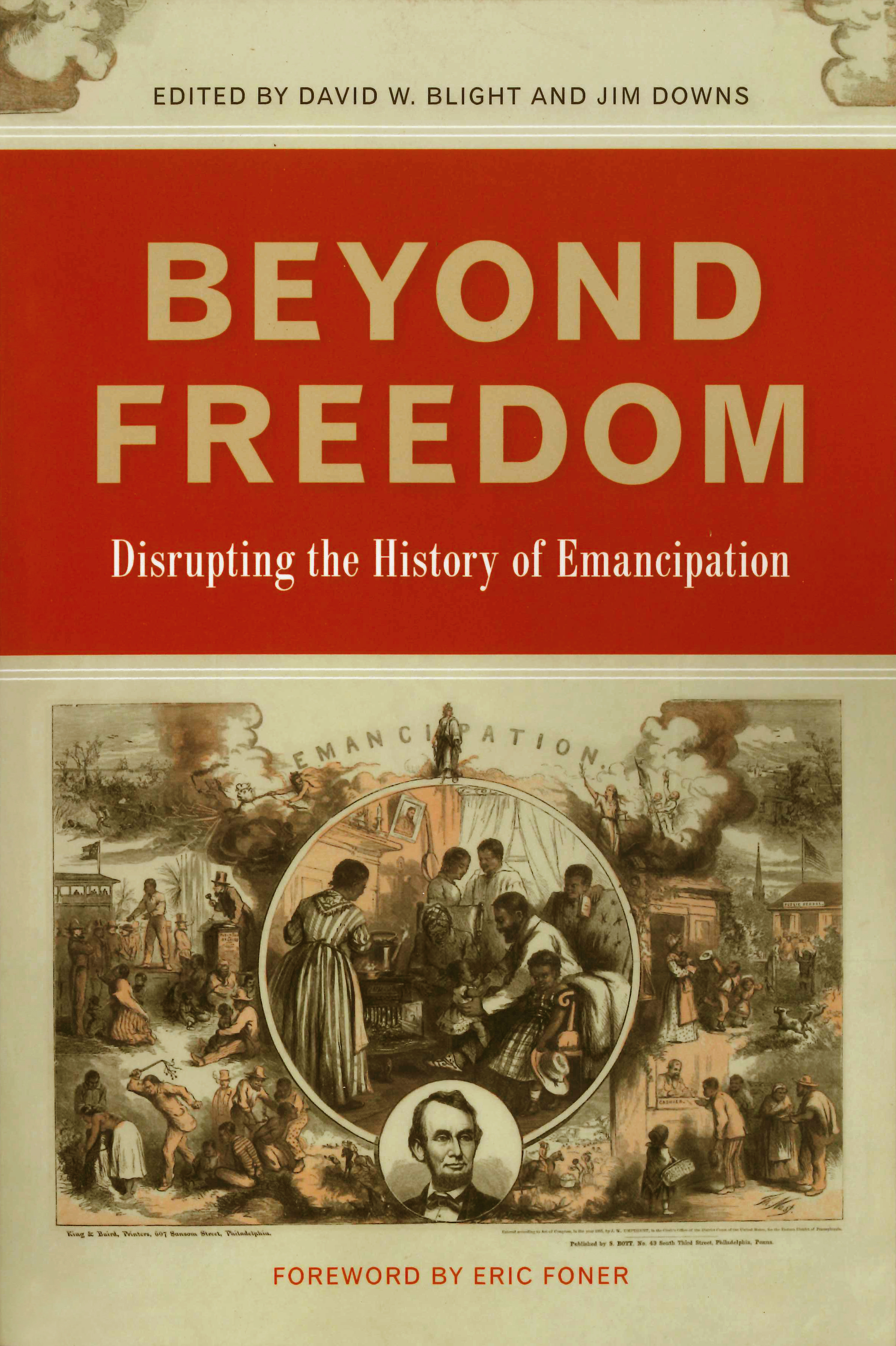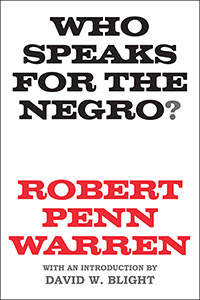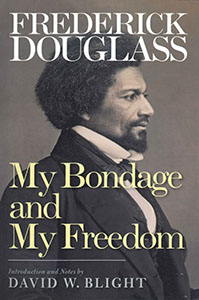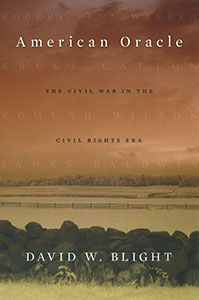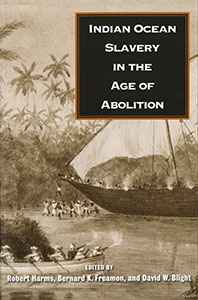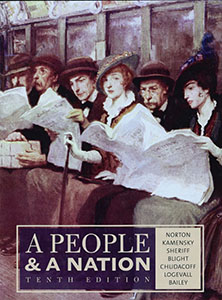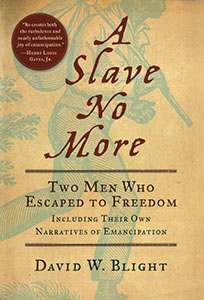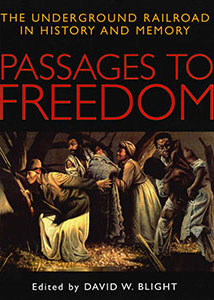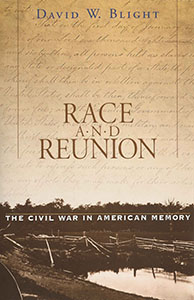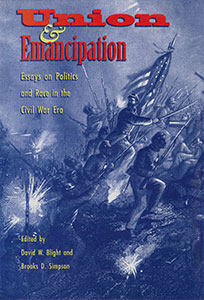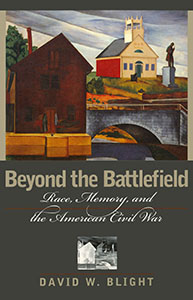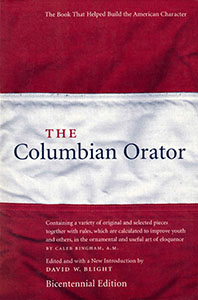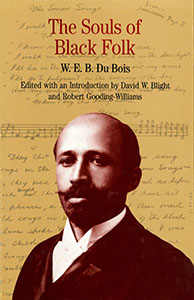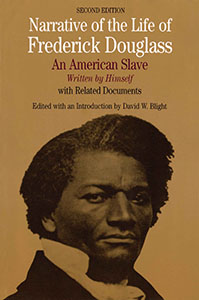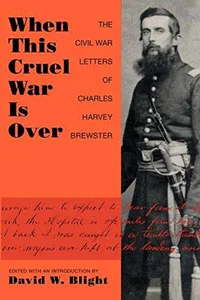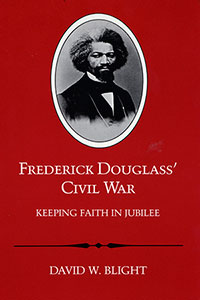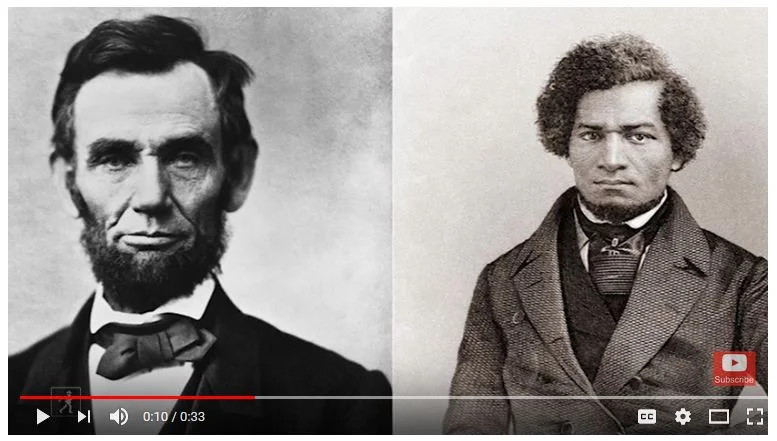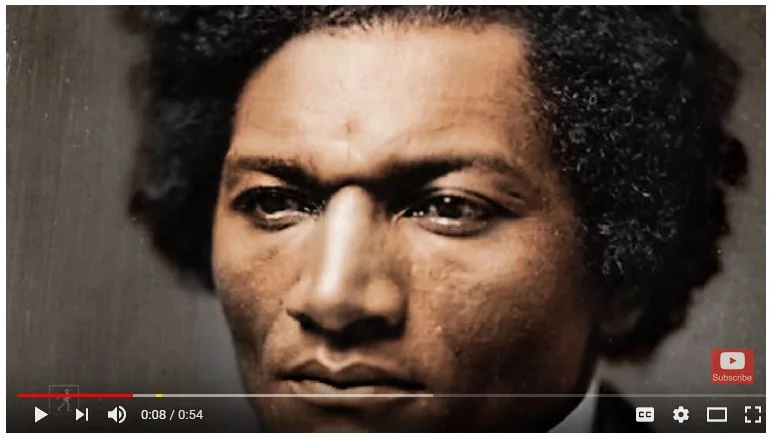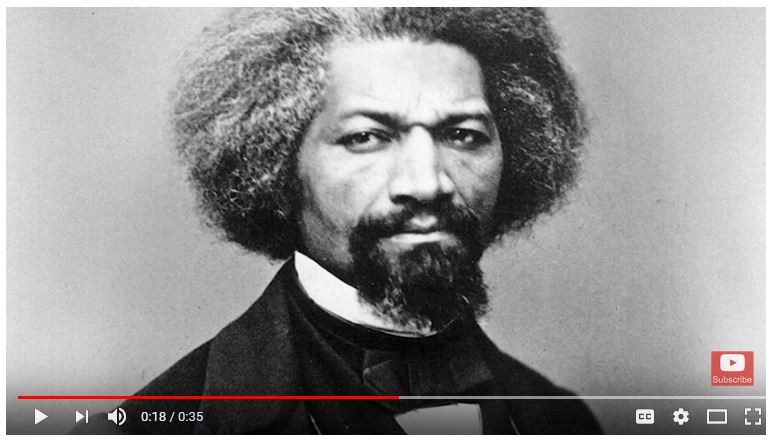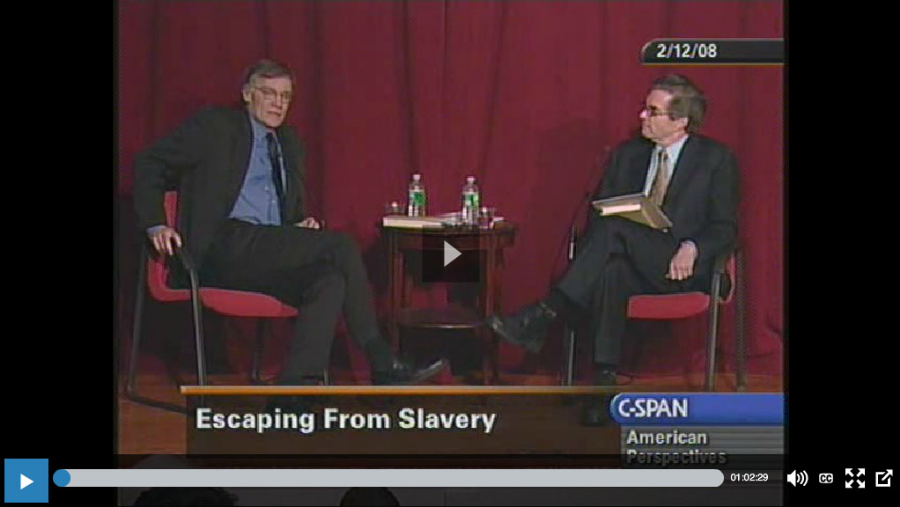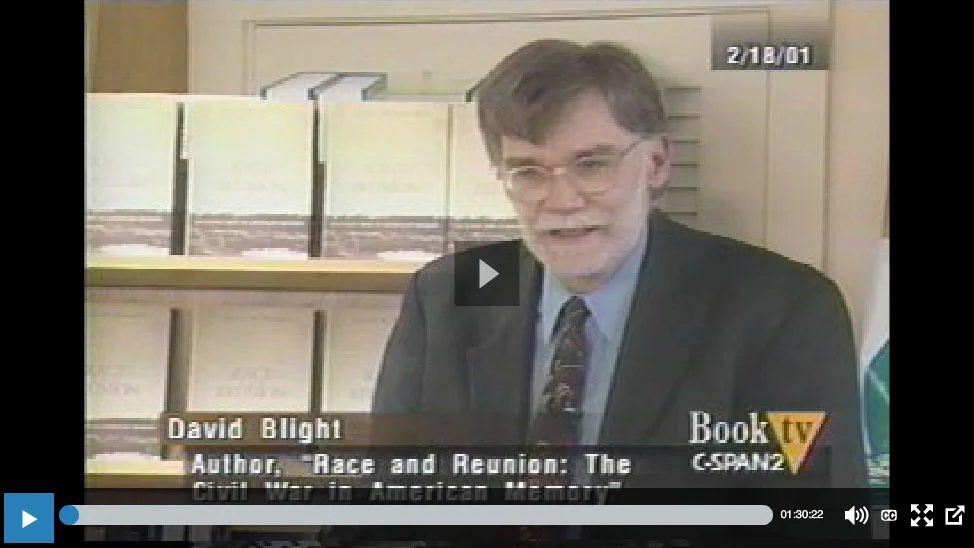Published by: Yale University Press (February 2024)
A comprehensive look at how slavery and resistance to it have shaped Yale University
Award-winning historian David W. Blight, with the Yale and Slavery Research Project, answers the call to investigate Yale University’s historical involvement with slavery, the slave trade, and abolition. This narrative history demonstrates the importance of slavery in the making of this renowned American institution of higher learning.
Drawing on wide-ranging archival materials, Yale and Slavery extends from the century before the college’s founding in 1701 to the dedication of its Civil War memorial in 1915, while engaging with the legacies and remembrance of this complex story. The book brings into focus the enslaved and free Black people who have been part of Yale’s history from the beginning—but too often ignored in official accounts. These individuals and their descendants worked at Yale; petitioned and fought for freedom and dignity; built churches, schools, and antislavery organizations; and were among the first Black students to transform the university from the inside.
Always alive to the surprises and ironies of the past, Yale and Slavery presents a richer and more complete history of Yale, the third-oldest college in the country, showing how pillars of American higher education, even in New England, emerged over time intertwined with the national and international history of racial slavery.
“Exhaustively researched, lyrically written, and fearlessly honest, Blight’s book represents not only a worthy capstone to the efforts of the Yale and Slavery Working Group, but also the culmination of a generation of scholarly inquiry into the tangled relationship of universities and slavery.”—James T. Campbell, Stanford University
Published by: Simon & Schuster (October 2018)
The definitive, dramatic biography of the most important African-American of the nineteenth century: Frederick Douglass, the escaped slave who became the greatest orator of his day and one of the leading abolitionists and writers of the era.
5 Things You Should Know About Frederick Douglass, History in Five, Simon & Schuster
The Lincoln-Douglass Dynamic, History in Five, Simon & Schuster
The Passion of Frederick Douglass, History in Five, Simon & Schuster
The Life of Frederick Douglass, History in Five, Simon & Schuster
Awards:
William Henry Seward Award for Excellence in Civil War Biography
2019 Plutarch Award
https://biographersinternational.org/topic/plutarch-award/
2019 Christopher Award
https://www.christophers.org/2019awards-press-release
2019 Francis Parkman Prize
2019 Pulitzer Prize in History
https://www.pulitzer.org/winners/david-w-blight
2018 Los Angeles Book Prize for Biography
https://events.latimes.com/festivalofbooks/bookprizes-2018/
2019 Bancroft Prize for History
https://www.nytimes.com/2019/03/07/arts/bancroft-prize-history-awarded.html
2019 Gilder Lehrman Lincoln Prize
Book Reviews:
“The self-made man” - The Times Literary Supplement
https://www.the-tls.co.uk/articles/public/self-made-man-frederick-douglass/
“Frederick Douglass: From hunted fugitive slave to brilliant elder statesman” - Washington Post
“The Confounding Truth About Frederick Douglass” - The Atlantic
“Frederick Douglass Biography by Yale Historian a Lesson for our time” - New Haven Register
“‘Radical Patriot’: A Review of David W. Blight’s ‘Frederick Douglass’” - San Francisco Chronicle
“Frederick Douglass in Full” - New York Times Sunday Book Review
“Frederick Douglass: Prophet of Freedom review: a monumental biography” - The Guardian
https://www.theguardian.com/books/2018/oct/27/frederick-douglass-prophet-of-freedom-review-biography
“Review: 'Frederick Douglass: Prophet of Freedom,' by David W. Blight” - Minneapolis StarTribune
http://www.startribune.com/review-frederick-douglass-prophet-of-freedom-by-david-w-blight/498670111/
“The Double Battle: Frederick Douglass’s Moral Crusade” - The Nation
https://www.thenation.com/article/the-double-battle/
“A Big New Biography Treats Frederick Douglass as Man, Not Myth” - New York Times
“BLIGHT: Frederick Douglass (2018)” - The Civil War Monitor
https://www.civilwarmonitor.com/blogs/blight-frederick-douglass-2018
“‘Frederick Douglass’ Is An Extended Meditation On The Legend's Self-Invention” - NPR
“The Prophetic Pragmatism of Frederick Douglass” - The New Yorker
https://www.newyorker.com/magazine/2018/10/15/the-prophetic-pragmatism-of-frederick-douglass
“Frederick Douglass, Prophet of Freedom by David W. Blight” - Open Letters Review
“Frederick Douglass Never Stopped Fighting for Black Liberation” - Pittsburgh Post-Gazette
“Complex Look at Frederick Douglass with a Lesson for Trump Era” - The Boston Globe
“‘Frederick Douglass’ Review: His Tongue the Pen of God” - The Wall Street Journal
https://www.wsj.com/articles/frederick-douglass-review-his-tongue-the-pen-of-god-1539308605
“'Frederick Douglass' Provides Authoritative Context for an Important American Life” - Christian Science Monitor
As a young man Frederick Douglass (1818-1895) escaped from slavery in Baltimore, Maryland. He was fortunate to have been taught to read by his slave owner mistress, and he would go on to become one of the major literary figures of his time. He wrote three versions of his autobiography over the course of his lifetime and published his own newspaper. His very existence gave the lie to slave owners: with dignity and great intelligence he bore witness to the brutality of slavery.
Initially mentored by William Lloyd Garrison, Douglass spoke widely, often to large crowds, using his own story to condemn slavery. He broke with Garrison to become a political abolitionist, a Republican, and eventually a Lincoln supporter. By the Civil War and during Reconstruction, Douglass became the most famed and widely travelled orator in the nation. He denounced the premature end of Reconstruction and the emerging Jim Crow era. In his unique and eloquent voice, written and spoken, Douglass was a fierce critic of the United States as well as a radical patriot. He sometimes argued politically with younger African-Americans, but he never forsook either the Republican party or the cause of black civil and political rights.
In this remarkable biography, David Blight has drawn on new information held in a private collection that few other historian have consulted, as well as recently discovered issues of Douglass’s newspapers. Blight tells the fascinating story of Douglass’s two marriages and his complex extended family. Douglass was not only an astonishing man of words, but a thinker steeped in Biblical story and theology. There has not been a major biography of Douglass in a quarter century. David Blight’s Frederick Douglass affords this important American the distinguished biography he deserves.
“A stunning achievement. Blight captures an icon in full humanity. From riveting drama in slavery and Civil War, his Douglass rises into clairvoyant genius on the blinkered centrality of race in our struggle for freedom.” – Taylor Branch, Pulitzer Prize-winning author of America in the King Years
“David Blight’s incandescent Frederick Douglass is a monumental achievement of biographical empathy, historical context, and grim comprehensiveness, a much-awaited masterpiece of a life that emblematized slavery as the problem of the 19th century, as was race that of Du Bois’s 20th, the legacy of both the problem of our 21st century.” – David Levering Lewis, Pulitzer Prize-winning author of W.E.B. Du Bois: The Biography of a Race, 1868-1919
“Superbly written. . . . Blight viscerally captures the vitality, strength, and determination of his subject. . . . [He] delivers what is sure to be considered the standard-bearer for years to come. A masterful, comprehensive biography.” – Kirkus Reviews (starred review)
“Frederick Douglass: Prophet of Freedom is a triumph—elegantly written, with much new material about one of the most famous and important men in modern history. David Blight has created a vibrant and convincing portrait of a towering figure who was also, Blight says, ‘thoroughly and beautifully human.’ A great American gets the stellar biography he deserves from one our country’s greatest historians.” – Annette Gordon-Reed, Pulitzer Prize-winning author of The Hemingses of Monticello: An American Family
“This much-anticipated biography of the foremost black leader and one of the greatest Americans of the nineteenth century fully lives up to and even exceeds high expectations. It is a work not only of stunning scholarship but also of literary artistry. David Blight’s—and Frederick Douglass’s—achievements have immeasurably enriched our understanding of slavery, abolitionism, the Civil War, and Reconstruction.” – James M. McPherson, Pulitzer Prize-winning author of Battle Cry of Freedom: The Civil War Era
“David Blight brilliantly illustrates both the perils and possibilities of our national history through a rich and humane portrait of a man and his times. This is a remarkable book about a remarkable American and his enduring impact.” – Drew Gilpin Faust, former president, Harvard University, and author of This Republic of Suffering: Death and the American Civil War
"No American of his generation did more than Douglass, both in word and deed, to propel his people, and the nation, toward a reckoning with its original sin. Now he is brought vividly and delightfully to life once more in the flesh and bones of this masterful biography by one of our greatest historians. Frederick Douglass: Prophet of Freedom is a monumental achievement, a must-read for anyone charting the history of a democracy when it is most severely under attack.” – Henry Louis Gates, Jr., Alphonse Fletcher University Professor, Harvard University
FOR MORE INFORMATION: http://www.simonandschuster.com/books/Frederick-Douglass/David-W-Blight/9781416593881
Published by: University of Georgia Press (November 1, 2017)
Edited by David W. Blight and Jim Downs
This collection of eleven original essays interrogates the concept of freedom and recenters our understanding of the process of emancipation. Who defined freedom, and what did freedom mean to nineteenth-century African Americans, both during and after slavery? Did freedom just mean the absence of constraint and a widening of personal choice, or did it extend to the ballot box, to education, to equality of opportunity? In examining such questions, rather than defining every aspect of postemancipation life as a new form of freedom, these essays develop the work of scholars who are looking at how belonging to an empowered government or community defines the outcome of emancipation.
Some essays in this collection disrupt the traditional story and time-frame of emancipation. Others offer trenchant renderings of emancipation, with new interpretations of the language and politics of democracy. Still others sidestep academic conventions to speak personally about the politics of emancipation historiography, reconsidering how historians have used source material for understanding subjects such as violence and the suffering of refugee women and children. Together the essays show that the question of freedom―its contested meanings, its social relations, and its beneficiaries―remains central to understanding the complex historical process known as emancipation.
Contributors: Justin Behrend, Gregory P. Downs, Jim Downs, Carole Emberton, Eric Foner, Thavolia Glymph, Chandra Manning, Kate Masur, Richard Newman, James Oakes, Susan O’Donovan, Hannah Rosen, Brenda E. Stevenson.
Published by: Yale University Press; Reprint edition (September 30, 2014)
By Robert Penn Warren: Introduction by David Blight
First published in 1965, this is a unique text in the history of the American Civil Rights Movement. Robert Penn Warren interviewed a wide range of African American leaders, activists, and artists across the country, among them Martin Luther King, Malcolm X, and James Baldwin. Sections from the transcripts of these interviews are combined with the author’s reflections on the interviewees and the Civil Rights Movement as a whole to create a powerful oral history of this all-important struggle. A new introduction by David W. Blight places Warren’s book in historical perspective.
"In this new edition introduced by the eminent historian David Blight, Who Speaks for the Negro? reveals a provocative admixture of history's variance. Warren's book is a burden of the past from which we cannot escape. It summons us to awaken a more vital national heartbeat of reparations for an American dilemma."—Houston Baker, Vanderbilt University
Published by: Yale University Press; Reprint edition (January 28, 2014)
By Frederick Douglass: Introduction and Notes by David Blight
Born into slavery in 1818, Frederick Douglass escaped to freedom and became a passionate advocate for abolition and social change and the foremost spokesperson for the nation’s enslaved African American population in the years preceding the Civil War. My Bondage and My Freedom is Douglass’s masterful recounting of his remarkable life and a fiery condemnation of a political and social system that would reduce people to property and keep an entire race in chains.
This classic is revisited with a new introduction and annotations by celebrated Douglass scholar David W. Blight. Blight situates the book within the politics of the 1850s and illuminates how My Bondage represents Douglass as a mature, confident, powerful writer who crafted some of the most unforgettable metaphors of slavery and freedom—indeed of basic human universal aspirations for freedom—anywhere in the English language.
Published by: Belknap Press of Harvard University Press (October 7, 2013)
Standing on the steps of the Lincoln Memorial on August 28, 1963, a century after the signing of the Emancipation Proclamation, Martin Luther King, Jr., declared, “One hundred years later, the Negro still is not free.” He delivered this speech just three years after the Virginia Civil War Commission published a guide proclaiming that “the Centennial is no time for finding fault or placing blame or fighting the issues all over again.”
David Blight takes his readers back to the centennial celebration to determine how Americans then made sense of the suffering, loss, and liberation that had wracked the United States a century earlier. Amid cold war politics and civil rights protest, four of America’s most incisive writers explored the gulf between remembrance and reality. Robert Penn Warren, the southern-reared poet-novelist who recanted his support of segregation; Bruce Catton, the journalist and U.S. Navy officer who became a popular Civil War historian; Edmund Wilson, the century’s preeminent literary critic; and James Baldwin, the searing African-American essayist and activist—each exposed America’s triumphalist memory of the war. And each, in his own way, demanded a reckoning with the tragic consequences it spawned.
Blight illuminates not only mid-twentieth-century America’s sense of itself but also the dynamic, ever-changing nature of Civil War memory. On the eve of the 150th anniversary of the war, we have an invaluable perspective on how this conflict continues to shape the country’s political debates, national identity, and sense of purpose.
Published by: Yale University Press (December 17, 2013)
Edited by Robert Harms, Bernard K. Freamon, and David W. Blight
While the British were able to accomplish abolition in the trans-Atlantic world by the end of the nineteenth century, their efforts paradoxically caused a great increase in legal and illegal slave trading in the western Indian Ocean. Bringing together essays from leading authorities in the field of slavery studies, this comprehensive work offers an original and creative study of slavery and abolition in the Indian Ocean world during this period. Among the topics discussed are the relationship between British imperialism and slavery; Islamic law and slavery; and the bureaucracy of slave trading.
Published by: Cengage Learning; 10th edition (January 1, 2014)
A PEOPLE AND A NATION is a best-selling text offering a spirited narrative that tells the stories of all people in the United States. The authors' attention to race and racial identity and their inclusion of everyday people and popular culture brings history to life, engaging readers and encouraging them to imagine what life was really like in the past.
Co-authors:
David W. Blight, Yale University
Mary Beth Norton, Cornell University
Jane Kamensky, Brandeis University
Howard P. Chudacoff, Brown University
Carol Sheriff, Brandeis University
Beth Bailey, Temple University
Fredrik Logevall, Cornell University
Published by: Houghton Mifflin Harcourt; 1st edition (November 5, 2007). Received three book awards, including the Connecticut Book Award for Non-Fiction; The Christopher Award; and one of Twenty Books to Remember from 2007 from the New York Public Library.
Slave narratives, some of the most powerful records of our past, are extremely rare, with only fifty-five post–Civil War narratives surviving. A mere handful are first-person accounts by slaves who ran away and freed themselves. Now two newly uncovered narratives, and the biographies of the men who wrote them, join that exclusive group with the publication of A Slave No More, a major new addition to the canon of American history. Handed down through family and friends, these narratives tell gripping stories of escape: Through a combination of intelligence, daring, and sheer luck, the men reached the protection of the occupying Union troops. David W. Blight magnifies the drama and significance by prefacing the narratives with each man’s life history. Using a wealth of genealogical information, Blight has reconstructed their childhoods as sons of white slaveholders, their service as cooks and camp hands during the Civil War, and their climb to black working-class stability in the north, where they reunited their families. In the stories of Turnage and Washington, we find history at its most intimate, portals that offer a rich new answer to the question of how four million people moved from slavery to freedom. In A Slave No More, the untold stories of two ordinary men take their place at the heart of the American experience.
Smithsonian Press Books, 2004.
David Blight is editor/author of two of the articles in the volume.
An eloquent publication to accompany the opening of the National Underground Railroad Freedom Center. Few American stories have such staying power as the tales of courageous slaves escaping from bondage through a rudimentary network of hiding places and way stations. These stories of enormous risk, of black leadership and white cooperation, of many thousands of journeys to freedom, have become a part of American historical consciousness. How much of the great story of the Underground Railroad is real, how much is legend and mythology, and how much is verifiable? Passages to Freedom is the single-best illustrated treatment of slavery, abolitionism, and emancipation, and seeks to answer these very questions. Artfully displaying illustrations and artifacts together with essays by leading American historians, the book explores the wealth of lore about the Underground Railroad that grew in the national culture after emancipation. Both the text and images examine why these stories endure—and need to endure—in our American culture. 78 color, 174 b/w photographs.
Published by: Belknap Press of Harvard University Press, 2001. Received seven book awards: Bancroft Prize, Abraham Lincoln Prize, Frederick Douglass Prize, and four awards from the Organization of American Historians, including the Merle Curti Awards in intellectual history and social history, the James Rawley Prize for race relations, and the Ellis Hawley Prize for political history.
No historical event has left as deep an imprint on America's collective memory as the Civil War. In the war's aftermath, Americans had to embrace and cast off a traumatic past. David Blight explores the perilous path of remembering and forgetting, and reveals its tragic costs to race relations and America's national reunion.In 1865, confronted with a ravaged landscape and a torn America, the North and South began a slow and painful process of reconciliation. The ensuing decades witnessed the triumph of a culture of reunion, which downplayed sectional division and emphasized the heroics of a battle between noble men of the Blue and the Gray. Nearly lost in national culture were the moral crusades over slavery that ignited the war, the presence and participation of African Americans throughout the war, and the promise of emancipation that emerged from the war. Race and Reunion is a history of how the unity of white America was purchased through the increasing segregation of black and white memory of the Civil War. Blight delves deeply into the shifting meanings of death and sacrifice, Reconstruction, the romanticized South of literature, soldiers' reminiscences of battle, the idea of the Lost Cause, and the ritual of Memorial Day. He resurrects the variety of African-American voices and memories of the war and the efforts to preserve the emancipationist legacy in the midst of a culture built on its denial.
Blight's sweeping narrative of triumph and tragedy, romance and realism, is a compelling tale of the politics of memory, of how a nation healed from civil war without justice. By the early twentieth century, the problems of race and reunion were locked in mutual dependence, a painful legacy that continues to haunt us today.
Published by: Kent State University Press, 1997.
David Blight is Co-Editor with Brooks D. Simpson.
In Union and Emancipation, seven leading historians offer new perspectives on the issues of race and politics in American Society from the antebellum era to the aftermath of Reconstruction. The authors, all trained by Richard H. Sewell at the University of Wisconsin - Madison, address two major themes: the politics of sectional conflict prior to the Civil War, illuminated through ideological and institutional inquiry; and the central importance of race, slavery, and emancipation in shaping American political culture and social memory. Contributors consider the national culture, the centrality of the nation-state in understanding American history, the place of race in redefining what it meant to be an American, the way the Civil War helped to redefine the nature of the 'political, ' and of 'citizenship, ' and the significance of political parties through the ideas and interests that motivate them. The collection, with its dual themes of union and emancipation, will provoke debate, offer insight, and challenge recent interpretations of this turbulent period in American history.
Published by: University of Massachusetts Press, 2002.
During the past decade and a half, scholars have increasingly addressed the relationship of history and memory. Among American historians, David W. Blight has been a pioneer in the field of memory studies, especially on the problems of slavery, race, and the Civil War. In this collection of essays, Blight examines the meanings embedded in the causes, course, and consequences of the Civil War, the nature of changing approaches to African American history, and the significance of race in the ways Americans, North and South, black and white, developed historical memories of the nation's most divisive event.
The book as a whole demonstrates several ways to probe the history of memory, to understand how and why groups of Americans have constructed versions of the past in the service of contemporary social needs. Topics range from the writing and thought of Frederick Douglass and W.E.B. Du Bois to a comparison of Abraham Lincoln and Douglass on the level of language and memory. The volume also includes a compelling study of the values of a single Union soldier, an analysis of Ken Burns's PBS series The Civil War, and a retrospective treatment of the distinguished African American historian Nathan I. Huggins.
Taken together, these lucidly written pieces offer a thoroughgoing assessment of the stakes of Civil War memory and their consequences for American race relations. Beyond the Battlefield demonstrates not only why we should preserve and study our Civil War battlefields, but also why we should lift our vision above those landscapes and ponder all the unfinished questions of healing and justice, of racial harmony and disharmony, that still bedevil our society and our historical imagination.
Published by: New York University Press, 1997.
David Blight is editor and author of introduction, a reprint, 200th anniversary edition of Caleb Bingham, The Columbian Orator (1797).
First published in 1797, The Columbian Orator helped shape the American mind for the next half century, going through some 23 editions and totaling 200,000 copies in sales. The book was read by virtually every American schoolboy in the first half of the 19th century. As a slave youth, Frederick Douglass owned just one book, and read it frequently, referring to it as a "gem" and his "rich treasure."
The Columbian Orator presents 84 selections, most of which are notable examples of oratory on such subjects as nationalism, religious faith, individual liberty, freedom, and slavery, including pieces by Washington, Franklin, Milton, Socrates, and Cicero, as well as heroic poetry and dramatic dialogues. Augmenting these is an essay on effective public speaking which influenced Abraham Lincoln as a young politician. As America experiences a resurgence of interest in the art of debating and oratory, The Columbian Orator--whether as historical artifact or contemporary guidebook--is one of those rare books to be valued for what it meant in its own time, and for how its ideas have endured. Above all, this book is a remarkable compilation of Enlightenment era thought and language that has stood the test of time
Published by: Bedford/St. Martin's; 1st edition (February 15, 1997)
Edited with an Introduction by David Blight and Robert Gooding Williams
One of the most influential and widely read texts in all of African American letters and history, The Souls of Black Folk combines some of the most enduring reflections on black identity, the meaning of emancipation, and African American culture. This new edition reprints the original 1903 edition of W.E.B. Du Bois's classic work with the fullest set of annotations of any version yet published, together with two related essays, and numerous letters Du Bois received and wrote concerning his widely read text. The introductory essay combines the sensibilities of a historian and a philosopher to capture the contours of Du Bois's life and writings along with the early-twentieth-century reception to the book. Photographs, a chronology, questions for consideration, a bibliography, and an index are also included.
Published by: Bedford Books of St. Martin's Press, 1993; 6th printing, 1997.
David Blight is editor and author of introduction.
This second edition of Douglass's Narrative reprints this classic document together with speeches and letters, all in a volume designed for undergraduate students. An extensive introduction places the Narrative in its historical and literary contexts with annotations on needed background.
Published by: University of Massachusetts Press; First edition (July 20, 1992)
David Blight is editor and author of introduction.
Charles Harvey Brewster's letters, most of which were written to his mother and two sisters, record not only the horrors he witnessed on the battlefield, but also his inner struggle with his own values, convictions, and sense of manhood.
In a thoughtful and illuminating introductory essay, David W. Blight explores the evolution of Brewster's understanding of the terrible conflict in which he was engaged. Blight shows how Brewster's attitudes toward race and slavery gradually changed, in part as a result of his contact with escaped slaves and his experience recruiting black troops. He also examines the shift in Brewster's conception of courage, as the realities of war collided with the romantic ideals he had previously embraced.
This recently discovered and exceptionally literate collection of 137 letters chronicles the experiences of an ordinary Union soldier caught up in extraordinary events. At times naive and sentimental, at times mature and realistic, Brewster's correspondence not only provides remarkable insight into the meaning of the Civil War for the average Yankee, but also testifies to the persistent power of war to attract and repel the human imagination.
Published by: Louisiana State University Press, 1989. (Paperback edition published, July, 1991; fourth printing, 2004.)
In this sensitive intellectual biography David W. Blight undertakes the first systematic analysis of the impact of the Civil War on Frederick Douglass' life and thought, offering new insights into the meaning of the war in American history and in the Afro-American experience. Frederick Douglass' Civil War follows Douglass' intellectual and personal growth from the political crises of the 1850s through secession, war, black enlistment, emancipation, and Reconstruction. The book provides an engrossing story of Douglass' development of a social identity in relation to transforming events, and demonstrates that he saw the Civil War as the Second American Revolution, and himself as one of the founders of a new nation. Through Douglass' life, his voice, and his interpretations we see the Civil War era and its memory in a new light.

